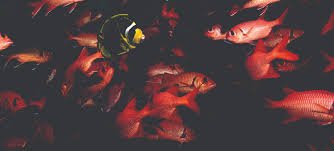The dragon (龙, Lóng) holds a profound place in Chinese mythology, folklore, and spiritual beliefs. Unlike Western traditions where dragons are often depicted as fearsome, fire-breathing beasts, Chinese dragons are revered as celestial beings, wise guardians, and mediators between the human world and the supernatural realm.
For centuries, Chinese culture has intertwined dragons with ancestral spirits, celestial deities, and the forces of the unseen world. These mystical creatures are believed to bridge the realms of the living and the dead, offering protection, wisdom, and guidance. Whether in Daoist practices, Buddhist traditions, imperial rituals, or ghost folklore, dragons remain powerful symbols of the supernatural and spiritual continuity.
This article explores the deep connection between dragons and spirits in Chinese culture, examining their role in mythology, religious beliefs, ancestral worship, ghost legends, and supernatural encounters.
1. Dragons as Celestial Guardians and Spirit Guides
The Dragon as a Divine Messenger
In many Chinese myths, dragons are not just creatures of the physical world but are believed to be celestial messengers that carry divine will between heaven and earth. They are often depicted as beings that can traverse different spiritual realms, guiding lost souls and delivering messages from deities and ancestors.
- In Daoist cosmology, dragons are said to dwell in mystical heavens, watching over the balance of Yin and Yang.
- The Yellow Dragon (黄龙, Huáng Lóng) is considered a divine entity that appears only in times of great change, often signaling the rise of a wise ruler or a cosmic shift.
- Many Chinese temples feature dragon motifs on altars and rooftops to symbolize their spiritual protection against malevolent forces.
Dragons as Protectors of the Spirit World
Chinese folklore often portrays dragons as keepers of the gates between the physical and spiritual worlds. Some stories describe dragons guarding the passage to the afterlife, ensuring that only righteous souls can enter the celestial paradise.
One of the most famous mythical figures associated with dragons is King Yama (阎罗王, Yánluó Wáng), the ruler of the underworld. In certain stories, dragons serve as his spiritual envoys, ensuring that souls are led to their proper afterlife destinations.
2. Dragons and the Spirit of the Ancestors
The Ancestral Dragon and Family Protection
In traditional Chinese ancestor worship (祭祖, Jìzǔ), dragons are seen as protectors of ancestral spirits. Many families believe that the presence of a dragon symbol in their home or ancestral temple ensures that their lineage remains blessed and protected.
- The Dragon Pillars (龙柱, Lóngzhù) found in ancestral halls represent the continuous spiritual connection between the past and the present.
- In many traditional Chinese families, elders tell stories of how a dragon might appear in dreams to guide a descendant toward success, health, or an important life decision.
- Some legends even suggest that the spirit of a respected ancestor can return in the form of a dragon, offering wisdom to the family.
The Legend of the Dragon Tombs
According to Chinese folklore, there are sacred burial sites known as Dragon Tombs (龙穴, Lóngxuè), believed to be charged with powerful ancestral energy. These sites are often located in Feng Shui-aligned landscapes, where dragons are said to reside as spiritual guardians, ensuring the protection and prosperity of future generations.
In ancient times, emperors and noble families sought to bury their ancestors in dragon-aligned locations, believing that such placements would grant eternal peace to the spirits and good fortune to the living.
3. Dragons and the Supernatural in Daoist and Buddhist Traditions
Dragons in Daoist Spiritual Practices
In Daoism (道教, Dàojiào), dragons are considered spiritual beings that regulate the balance of cosmic energy. Many Daoist priests invoke the power of dragons during rituals to dispel evil spirits and restore harmony.
- The Azure Dragon (青龙, Qīng Lóng) is one of the Four Divine Beasts (四象, Sìxiàng) and is associated with spiritual enlightenment and celestial order.
- Certain Daoist talismans feature dragon symbols to ward off ghosts and negative energies.
- Some Daoist immortals (仙, Xiān) are believed to have ridden dragons into the heavens, signifying their transcendence beyond the material world.
Dragons and Buddhist Beliefs in the Afterlife
In Chinese Buddhism, dragons are often depicted as protectors of sacred texts and enlightened beings. Some Buddhist sutras describe dragons as guardians of the Dharma (法, Fǎ), ensuring that the spiritual teachings remain pure and untouched by corruption.
One famous legend involves Nāgas (龙王, Lóngwáng)—serpentine dragon deities that reside in the oceanic depths and are said to hold vast spiritual wisdom. These dragon kings often appear in Buddhist scriptures as spiritual allies, guiding monks toward enlightenment.
- The Lotus Sutra (法华经, Fǎhuá Jīng) describes a Dragon Princess who attains enlightenment, proving that even supernatural beings can achieve Buddhahood.
- Some Buddhist temples in China feature dragon carvings at their entrances, symbolizing their role as protectors of spiritual wisdom.
4. Dragons in Ghost Stories and Supernatural Encounters
Dragons Battling Evil Spirits
Chinese ghost stories often depict dragons as warriors against malevolent spirits. Many folk tales tell of villages haunted by vengeful ghosts, only to be saved by the sudden appearance of a golden or celestial dragon that vanquishes the dark forces.
One such story tells of a monk who summoned a dragon to defeat a water demon, preventing it from terrorizing the local people. The dragon, acting as a celestial judge, ensured that the spirit found peace instead of continuing its hauntings.
The Dragon’s Role in Yin-Yang Balance
In traditional Chinese cosmology, the dragon is associated with Yang energy (阳), representing light, life, and positive spiritual force. This contrasts with Yin energy (阴), which is often linked to ghosts, the afterlife, and the unknown.
- Some legends claim that when the balance between Yin and Yang is disturbed—such as when a ghost refuses to move on—a dragon will appear to restore harmony.
- Exorcists and Feng Shui masters often invoke the power of dragons to cleanse haunted locations and remove negative spiritual influences.
5. Modern Beliefs and the Legacy of the Spiritual Dragon
Even in modern China, the spiritual significance of dragons remains strong. Many Chinese people continue to wear dragon charms or tattoos as symbols of protection against misfortune and spiritual unrest.
- Dragon festivals are still celebrated, honoring their role as guardians of cosmic balance.
- In some rural areas, elders still believe that dreams of dragons can predict spiritual messages from the beyond.
- Feng Shui practitioners use dragon imagery to channel positive supernatural energy into homes and businesses.
Conclusion
The Chinese dragon is more than just a mythical creature; it is a spiritual guardian, an ancestral protector, and a bridge between the natural and supernatural worlds. From guiding souls in the afterlife to battling malevolent spirits, dragons play a crucial role in Chinese beliefs about the unseen realms.
Through Daoism, Buddhism, ghost folklore, and Feng Shui, the dragon continues to symbolize the eternal cycle of life, death, and spiritual harmony, proving that its mystical presence remains deeply embedded in Chinese culture today.






